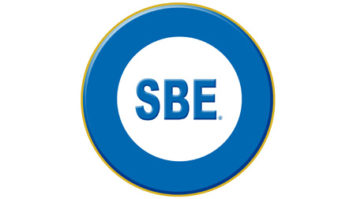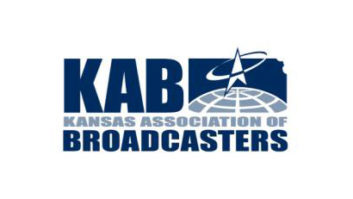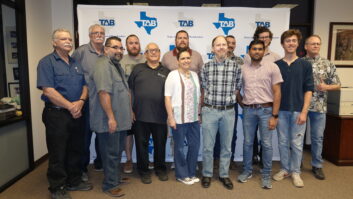Contract Engineer Ihor Slabicky has been gathering supplies for his “outpost,” better known as the remote transmitter site. He sends a few items to add to your own list, which we discussed a while back.
First is toilet paper, preferably in a Ziploc brand or similar sealable bag to keep the paper dry.
I’ve seen engineers go further and create a portable potty by heading to Lowes and picking up a plastic contractor bucket. Add a cheap toilet seat, a few rolls of TP and a box of kitchen-sized garbage bags. If you’re stuck at your site for a while, you may be grateful for this rudimentary solution. (Feel free to add a can of air sanitizer.) Fig. 2 shows a bucket with screw-on lid.

Fig. 1: Sealable bags are great not only for holding parts but for keeping things dry.

Fig. 2: A plastic bucket with lid can help store your survival items; or use one to create a rudimentary potty.
In his survival kit, Ihor also includes matches, a disposable butane lighter and candles.
Here’s an item you probably forgot: a two- to three-day supply of your prescription drugs. Don’t want to use prescription bottles? Place them in a plastic film container (if you can find one).
Be sure periodically to use up these medications and refresh your supply, since they do lose potency over time. Don’t get stuck with medicines that are years old.

Fig. 3: Keep a few days of your prescription drugs on hand, just in case.
As a non-smoker I wouldn’t have thought of this, but Ihor reminds smokers to add some extra smokes. The alternative is quitting cold turkey.
A couple of items that don’t require batteries are a wind-up flashlight and a wind-up radio. Both are useful.
When we compiled our list last year, bottled water topped it, even if you have water service at the site. Pumps require electricity, and if electrical service and your generator quit, you still need water to survive. Ihor suggests scouring the supermarket for a great buy on its own brand. Water in bulk is cheap.
Just as you keep your supply of prescription meds fresh, Ihor suggests doing the same for water and food. You don’t want to get stuck with really old food. (Maybe make this part of your scheduled battery replacement regime.)
Ihor once explored the contents of a civil defense bomb shelter and discovered some canned crackers. His first thought was, “I’d rather be bombed than have to eat those!”
Some instant coffee in a small jar, some tea bags, sugar packets and creamer, all sealed in a Tupperware-type container, round out your consumables.
Mylar “space” blankets are cheap, as we’ve mentioned before (and if you run marathons, they are sometimes given out there). Pick up a couple.
Speaking of blankets, keep at least one old one in the trunk of your car.
Gather your site supplies and place them in a large clear plastic storage bin.
Other ideas? Email them to me at [email protected].
* * *
With regard to our recent tips about cleaning corroded battery terminals, Ihor is a firm believer in petroleum jelly.
He has found that a light coating on electrical contacts diminishes or even eliminates corrosion. It also increases equipment life.
For example, he coated the bases of light bulbs used in outdoor fixtures. This extended service life to a more reasonable 9+ months, probably closer to the life expectancy of the bulbs.
Ihor coats the contacts by placing some petroleum jelly on a swab, swiping it all over the base and then using a napkin to wipe it around. Then he wipes off the excess. For batteries, Ihor puts a light film of petroleum jelly on both battery terminal ends rather than on the springy metallic contacts.
Also in the Dec. 1 issue we discussed using vinegar for cleaning terminals. Ihor has tried ketchup. This sounds funny; but ketchup contains quite a bit of vinegar, and its thick consistency means it will stick to corroded contacts. Its consistency also eliminates a splash area, required for applying vinegar. When the contacts are cleaned, wipe off the ketchup and wash well with distilled water.

Fig. 4: Heed the warning.
* * *
Contract Engineer Bill Betlej, who also works for Mary Baldwin College, recalls a label that the Bogen Amplifier Co. affixed to its amplifiers (Fig. 4).
The warning “do not assume anything” probably is just as applicable today as when it appeared 30 years ago on the amplifier Bill was now repairing.
Even old-salt engineers would do well to abide by this warning. With that in mind, make a resolution not to work on high-voltage/high-current transmitter equipment alone. Bring the PD, if you must.
“I will not work when I am tired.” “I will stay away from tower sites during ice storms (falling ice) or lightning storms (electric shock).” Simple resolutions like this, if kept, help ensure that you’ll be around to read this column next year.
Contribute to Workbench. You’ll help your fellow engineers, and qualify for SBE recertification credit. Send Workbench tips to [email protected]. Fax to (603) 472-4944.
Author John Bisset has spent 43 years in the broadcasting industry, and is still learning. He is SBE certified and is a past recipient of the SBE’s Educator of the Year Award.












